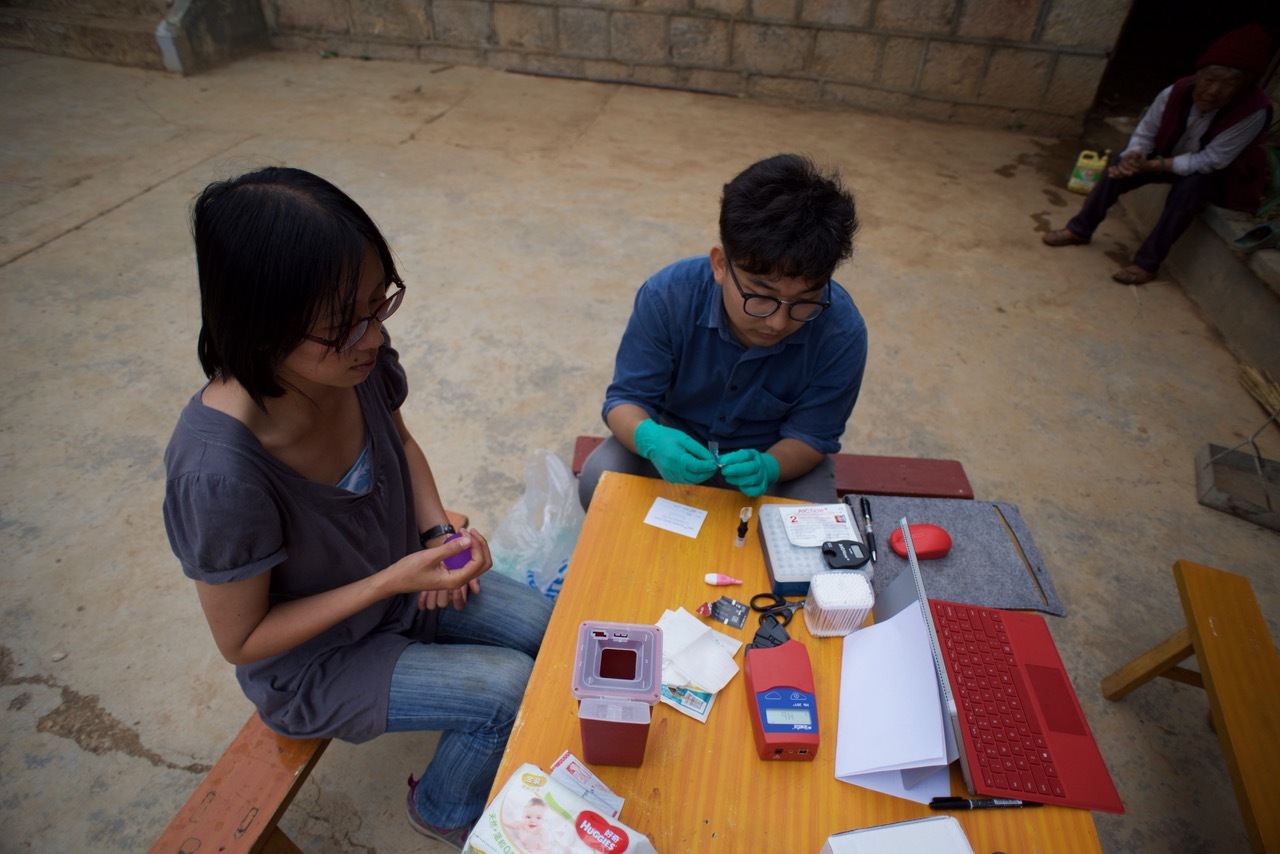UNM researchers find gender norms favoring women can reverse health gaps between sexes
Despite women tending to outlive men in almost all societies, they experience more sickness along the way. This gender-health paradox has long puzzled researchers.
Biological differences between the sexes — females’ higher body fat percentage, for example — are often thought to be the reason why women are subject to a higher burden of chronic disease. But, as COVID-19’s disproportionate effect on women’s employment and productivity has made plain — women experience different and often compounding stressors, which can contribute to poorer health.
A new study published in the “Proceedings of the National Academy of Sciences“ points to gender norms as a primary cause of health disparities between men and women. Researchers working among the Mosuo, a minority society in Southwest China, compared communities with two different sets of expectations for household membership and inheritance — called kinship norms.
“Matrilineal” Mosuo typically pass land, home, and wealth from mothers to daughters, who form the backbone of society, with men in more peripheral roles. “Patrilineal” Mosuo typically pass inheritance from fathers to sons. Because of this, in matrilineal Mosuo communities, women tend to have more autonomy and control of resources. Language, religion, and other cultural beliefs and practices are largely similar across matrilineal and patrilineal Mosuo communities, which makes these factors unlikely explanations of observed differences in health between these communities.
As part of a larger National Science Foundation-funded project, the research brought together an interdisciplinary team of anthropologists, biologists, and demographers from U.S. and Chinese universities to study the impacts of economic change on health and well-being.
During two years of data collection, the researchers visited hundreds of Mosuo households in Yunnan Province, interviewing people about their socio-economic circumstances and using blood drawn from finger-pricks as a minimally-invasive method to study participants’ health.
The researchers leveraged their interdisciplinary expertise to test an old, but under-tested, hypothesis that women experience improved health in cultures where they enjoy higher status and empowerment.
When the research team, including first author Adam Reynolds, a graduate student of the University of New Mexico’s Human Family and Evolutionary Demography Lab, compared matrilineal and patrilineal Mosuo, the difference was striking — women had higher rates of hypertension and inflammation than men in patrilineal communities, but lower rates than men in matrilineal communities.
“This is to our knowledge the first time that a complete reversal in long-term health for men and women has been observed,” said Lab Director and research team leader Siobhán Mattison. “It suggests that the mainstream biomedical understanding of gender disparities in health may discount the contributions of prevailing gender norms that favor men in most societies. Because there are both matrilineal and patrilineal communities of Mosuo, this unique population provides a kind of natural experiment for testing the effects of fundamental cultural features, such as gender norms, on biology and health, tests that are difficult to perform in most populations studied by biomedical researchers.”
The reversal in health disparities was driven by differences in women’s health — men’s health was roughly similar across the two communities. Although the researchers can’t pinpoint exactly how differences in gender norms affect health, their analysis suggests that a combination of factors, including better access to resources and kin support for women may be important. This is consistent with work suggesting that empowering women within households and communities improves women’s health.

“We’ve long known that stress is an important factor in health and disease. However, when it comes to gender disparities in health, the common assumption is that hormones and sex chromosomes are the primary culprits,” Reynolds said. “Our work shows that in cultures with norms that favor men, women may have worse health because they experience more stress or adversity than men do.”
“People in both patrilineal and matrilineal communities consume rice, pork, and yak butter regularly. Both women and men contribute to agricultural labor. Given the similarities in diet and lifestyle, we were able to isolate kinship norms as our primary unit of comparison,” says Chun-Yi Sum, lecturer of social sciences at Boston University, fieldwork team leader and co-author on the study.
Over their fifteen years of research with the Mosuo, the research team has seen rapid economic development in the region, due primarily to rapidly growing ethnic tourism in the area. Like many other cultures globally, as Mosuo diets and lifestyles change, they are at increasing risk for chronic diseases such as hypertension, obesity, and diabetes.
“Increasing tourism has led to an influx of wealth, more processed foods in the diet, and sedentary lifestyles that together increase chronic disease risk,” said co-author Katherine Wander, assistant professor of anthropology at Binghamton University. “As chronic diseases continue to increase in prevalence around the world, our work suggests that women will continue to be disproportionately affected, not because they are inherently more vulnerable, but because gender and kinship norms disadvantage them.”
The authors said they hope this work will inspire broader thinking about women’s health.
“Even though women live longer lives than men, they don’t live healthier lives. Overall, women tend to have higher rates of chronic disease,” Mattison said. “Our research suggests that this inequality isn’t going to be solved purely by biomedicine or typical public health interventions. There is no way to solve these problems without considering the cultural systems that constrain or empower people.”

